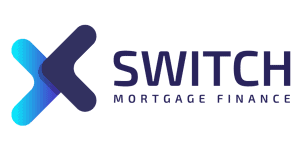There are many factors which can influence rises in mortgage interest rates. In this article we are concentrating on 5 important factors, which in the past have affected mortgage interest rates. Mortgage lenders will use the below factors to decide how to price their fixed rate mortgage products and the Bank of England also use these factors when considering increasing or decreasing the Bank of England base rate.
Are Different Types of Mortgages Affected by Different Factors?
In a nutshell, yes. There are different types of mortgages including fixed rate, tracker, discounted variables and standard variable mortgages. The type of mortgage you have is important, because changes to certain factors may have a larger impact to one type of mortgage, compared to another.
Tracker Mortgage
Tracker mortgages are priced in line with the Bank of England Base rate. Therefore interest rates, will be impacted by any movement to the Bank of England’s base rate. This has risen steadily since December 2021 (currently it sits at 2.25%), meaning rates on tracker mortgages have been increasing. The base rate is widely expected to rise again on Thursday 3 November 2022, when the Bank of England next conducts its review. If you want to know more about Tracker mortgages we have a further guide here.
Fixed Mortgage
Fixed rate mortgage interest rates, are set by the mortgage provider. When the mortgage provider is pricing their interest rates they will take into account quite a few factors. For the purpose of this article we will be looking at swap rates, gilt yields and the Bank of England base rate. There are additional factors, but we will not be going into detail on these. ‘Swap rates’ are basically long-term interest rate predictions. A swap rate is the rate mortgage lenders pay to get the funding which allows them to offer fixed-rate mortgages to borrowers. If swap rates rise so will fixed rate products. Similarly if gilt interest rates are high or rising, mortgage interest rates will also follow. Rises in the Bank of England base rate can also contribute to rises in fixed rate products.
Variable Mortgage
A variable mortgage’s rate can move and fall at anytime. A discounted variable mortgage or a mortgage on the current mortgage providers standard variable rate, have the interest rate set by that mortgage provider. The provider can change this at any time. Although it doesnt have to move in line with the Bank of England base rate, in most cases it does.
1. Inflation
The Monetary Policy Committee (MPC) meet on 8 seperate occasions over the course of a year to decide the Bank of England base rate. The MPC have an official inflation target set at 2%. Currently UK inflation is well above this target.
If inflation increases above the target (or is forecast to rise above the target) then the Bank of England are likely to increase interest rates. Higher interest rates increase the cost of borrowing and make saving more attractive. This tends to reduce consumer spending and investment therefore reducing the growth of aggregate demand. Therefore, economic growth tends to slow down and this reduces inflationary pressure. If inflation is high it is probable the base rate would increase, which as a result directly affects tracker mortgages and can also impact on fixed and standard variable rates offered by mortgage lenders.
2. Recession
A recession is a period of temporary economic decline during which trade and industrial activity are reduced, generally identified by a fall in GDP in two successive quarters. It is predicted the UK is going to enter another recession. Weak economic growth reduces the chance of another interest rate rise, whilst strong economic growth makes another interest rate rise more likely, in order to avoid the economy growing to quickly. Reducing interest rates can be used to encourage consumers to spend and businesses to take out borrowing to increase staff or offer more products and services. This in turn should kickstart the economy to start growing again.
3. UK Employment
Employment figures are used as a factor in the decision on changes to mortgage interest rates. Strong employment numbers increase the chances of an interest rate rise as does rising wages. If unemployment is high then interest rates will more likely drop.
4. UK Economic Growth Forecasts
The forecasts present a prediction of the UK’s economy and how key forecasters expect the UK economy to perform over the next couple of years. They are a key factor used by the Bank of England when considering whether to increase the base rate. If the forecasts are good, it is likely that interest rates will rise, whereas if they are poor it is likely the interest rates will be reduced or held at the current rate. Recently (October 2022) the forecasts have shown it is likely the UK’s economic growth is likely to contract and therefore a recession is likely.
Gilt Yields & Swap Rates
Gilt yields and swap rates are the major contributing factor to mortgage lenders pricing their fixed rate products. Fixed rate interest rates are heavily influenced by the performance of gilts and the pricing of swap rates. Swaps rates are long-term interest rate predictions. A swap rate is the rate mortgage lenders pay to get the funding, which allows them to offer fixed-rate mortgages to borrowers. The cost of these swap rates is in turn heavily influenced by the value of gilts – a debt issued by the UK Government. The Government sells gilts to investors as a way of borrowing money. The interest of these gilts can rise or fall, as a result fixed rates on borrowers mortgages are directly affected.
The factors described in this article offers a high level analysis into the factors used to determine mortgage interest rates, however other external factors can also contribute and the information contained within this page does not constitute advice.
